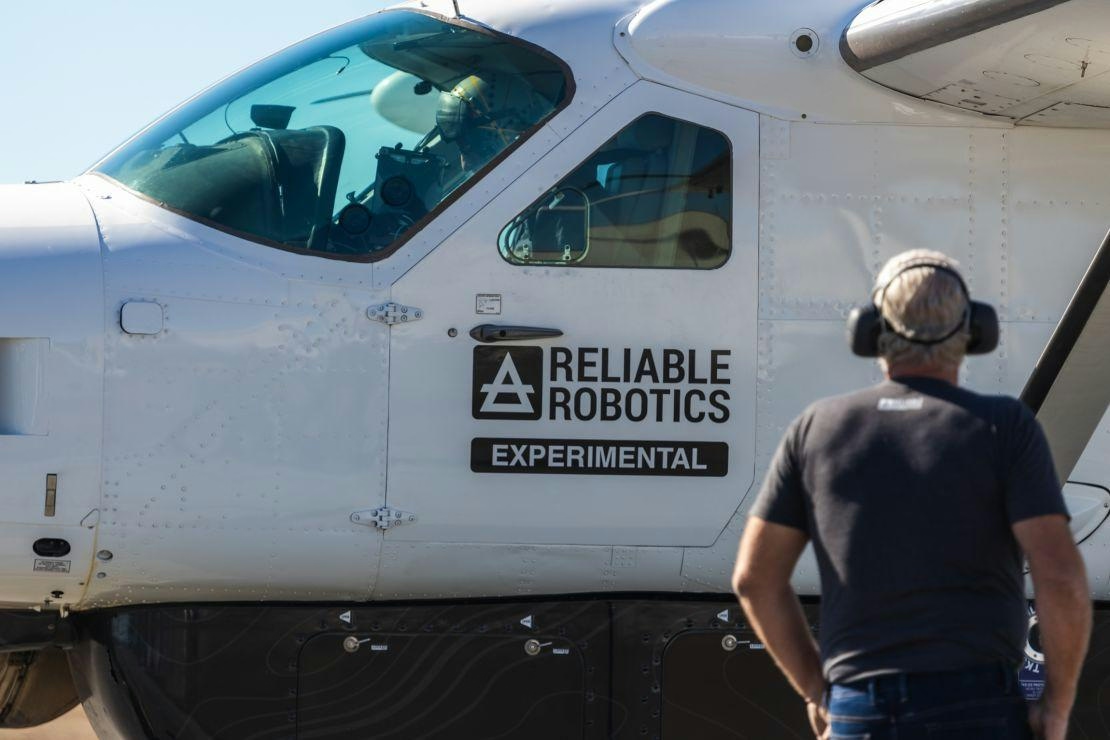AeroGenie — Il tuo copilota intelligente.
Tendenze
Categories
Would you board an AI-piloted airliner?

Would You Board an AI-Piloted Airliner?
As autonomous systems increasingly assume safety-critical roles in aviation, the industry faces a complex challenge: how to balance trust, safety, and innovation. Dr. Rashid Ali FRAeS, Chair of the RAeS C3 Specialist Group at Coventry University, examines the critical issues shaping the future of flight and public acceptance of AI-piloted aircraft.
Public Perception and the Fear of the Unknown
In a recent seminar, Dr. Ali sought to understand public sentiment toward autonomous flight by collecting candid responses from a diverse group of professionals—including nurses, lawyers, accountants, and managers—while concealing his identity to avoid researcher bias. The findings revealed a pervasive sense of uncertainty and mistrust.
Imagine an airport terminal where an announcement declares that a flight to New York will be operated entirely by a computer, with no human pilot on board. The initial silence that follows quickly gives way to murmurs of confusion and apprehension. Despite decades of automation advancements, the prospect of flying without a human pilot remains unsettling for many. Passengers often feel like unwitting test subjects, questioning whether AI can safely manage the complexities of flight at cruising altitudes. Comparisons to self-driving cars underscore this skepticism, as autonomous vehicles have yet to fully earn public confidence.
Regulatory, Market, and Industry Challenges
Beyond passenger perception, the introduction of AI-piloted airliners presents significant regulatory and insurance challenges. Authorities must develop frameworks to certify and insure aircraft operated by artificial intelligence, while the industry grapples with questions of liability in the event of an incident.
Market reactions to AI in aviation are mixed. Some investors view AI as a catalyst for improved efficiency and safety, while others caution against the risk of an AI bubble fueled by overhyped expectations. Traditional airlines are closely monitoring these developments, with some accelerating investments in AI technologies to enhance operational performance. However, they must also confront public concerns directly, as passenger trust remains a crucial factor in the successful adoption of autonomous flight.
Navigating the Future of Autonomous Aviation
The path forward requires a careful balance between innovation, safety, and public confidence. As the aviation sector advances toward greater autonomy, transparent communication, rigorous testing, and robust regulatory oversight will be essential. Addressing both the technical challenges and the human factors involved is critical if the industry hopes to persuade passengers to embrace AI-piloted airliners with assurance.

Emirates Unveils Cabin Design for New Boeing 777X

Eighteen Years On, the Airbus A380 Remains Central to a $34 Billion Airline

How a boom in luxury airline seats is slowing down jet deliveries

Navitaire Outage Attributed to Planned Maintenance

DigiYatra Debuts Outside Aviation at India AI Impact Summit

Vietnam Orders Strengthen Boeing’s Commercial Outlook

Airbus Signals Uncertainty Over Future A400M Orders

JobsOhio Awards $2 Million Grant to Hartzell Propeller for Innovation Center

Collins Aerospace Tests Sidekick Autonomy Software on YFQ-42A for U.S. Air Force CCA Program

How the Airbus A350-1000 Compares to the Boeing 777
